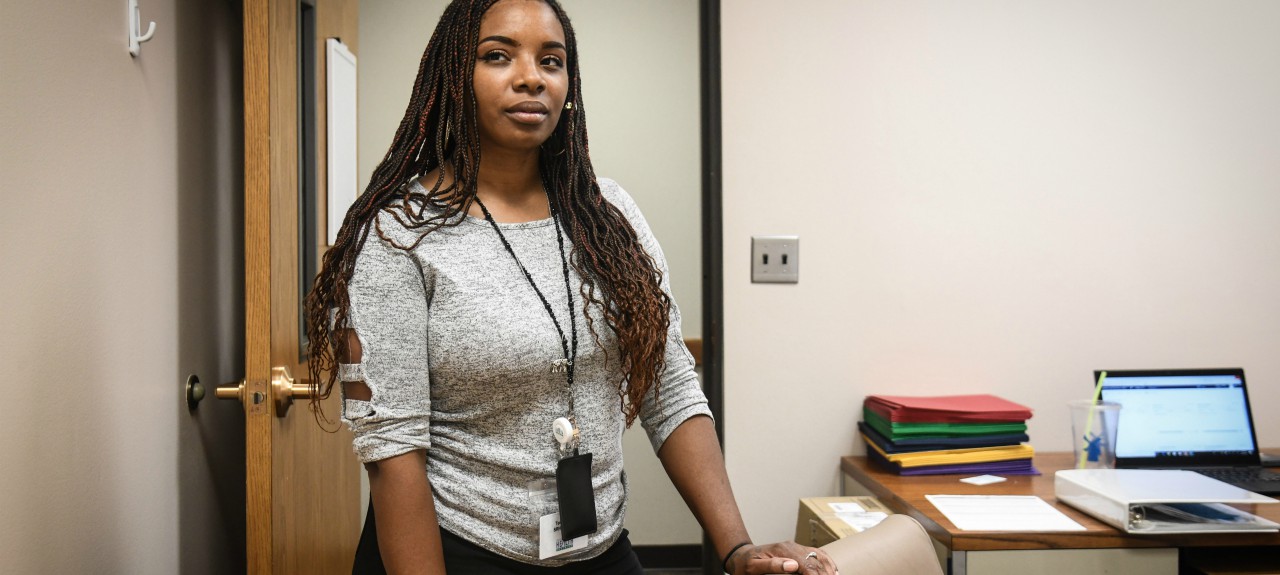A $100,000 estate gift to the Meds-First Initiative improves access to treatment at four sites statewide.
By Stephen Robinson, Philanthropic Advisor
Earlier this year, a philanthropist reached out for some advising. She’d recently lost her father and his estate was making it possible for her to distribute considerable resources into the community. Following a series of conversations, she opted to make several high-impact grants from her fund here at Seattle Foundation, rather than spread the resources across a greater number of small grants. One of the investments she made was a $100,000 grant toward alleviating the opioid crisis locally.
The philanthropist, who prefers to be anonymous, was inspired to move resources toward easing the suffering caused by the opioid crisis in part because her partner works as a nurse inside prisons and had described to her the experiences of people going through withdrawal. Hearing stories about what people went through behind bars made the philanthropist deeply empathetic toward the experiences of people all over the region who are chasing a dangerous and insatiable addiction.
I started investigating options for effective giving in this area by turning to trusted resources for best practices in the effort to prevent overdoses and help people break their opioid addictions. Often the best use of philanthropic dollars is in upstream interventions that consider the social, economic and environmental origins of a problem, target those root issues and offer approaches that can help large populations of people. Philanthropy can sometimes provide the much-needed research and development dollars for major social problems when solutions don’t generate the revenues that might elicit private investment. In the case of opioid use disorder, many upstream interventions are focused on improving access to treatment, particularly for high-needs populations like those experiencing homelessness.
My search led me to the Alcohol and Drug Abuse Institute (ADAI), a multidisciplinary research center at the University of Washington where Caleb Banta-Green is a principal research scientist. Caleb and ADAI lead an innovative program called the Meds-First Initiative, which removes barriers to medication and provides treatment for people struggling with opioid use disorder; it was the perfect fit for this philanthropist. Caleb’s initiative was already proving a new model of care could be transformative in battle against the opioid epidemic and was looking for funding to prove the business case to use existing healthcare incentives to promote systemic change. It was the right time to invest in catalytic change.
In conversations with Caleb, the philanthropist and I learned that a medication called buprenorphine reduces mortality for Americans with opioid use disorder by 37%, yet 70–80% of people who would benefit from treatment don’t have access to it. Meds-First was getting ready to address that access problem by opening four treatment sites, in North Seattle, Tacoma, Spokane and Walla Walla, each of which was intentionally co-located with needle exchanges and staffed with care navigators, nurse care managers, and prescribers. Meds-First expects to serve approximately 1,250 patients over two years and prove this model of care as effective and efficient for use nationwide.
As a major funder of Meds-First, the SeaFdn philanthropist is playing a crucial role in making treatment possible for many people who would otherwise struggle to access it. Her journey to making this investment highlights the way community foundations like SeaFdn can support the interests of philanthropists by working together to find the giving opportunities where their contributions can address the root of a problem and make a big difference.
You can learn more about other local efforts to respond to the opioid crisis here. If you are considering an estate gift, we invite you to explore our Changemakers Circle or contact our Gift Planning Team.

